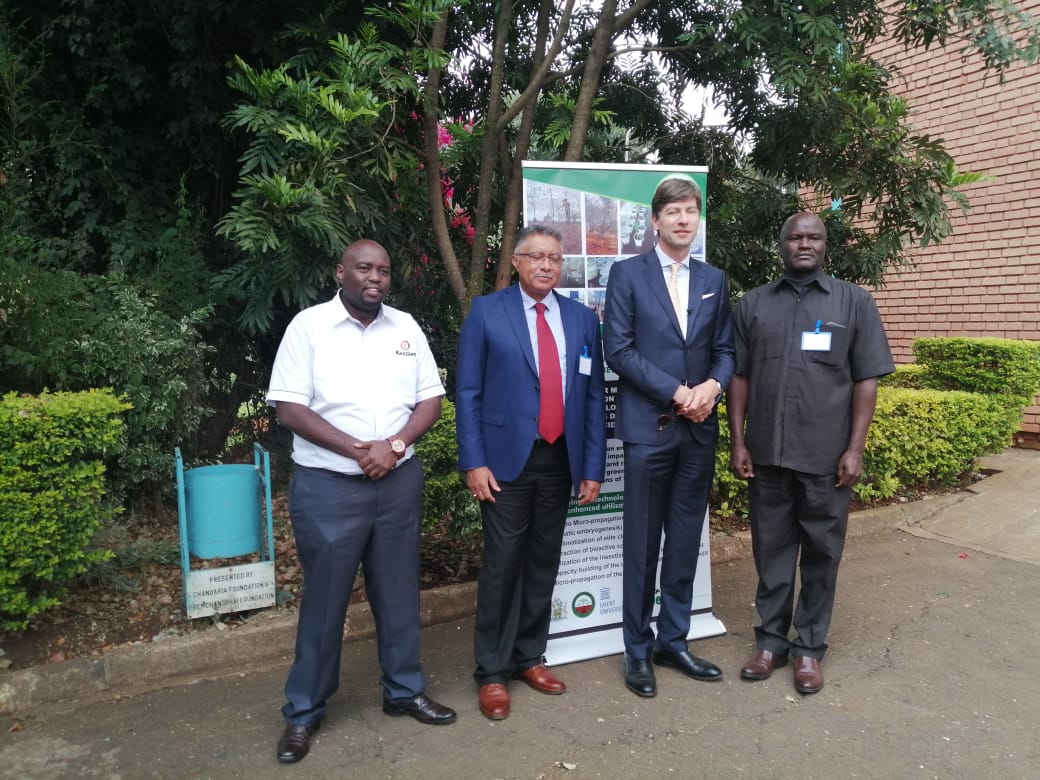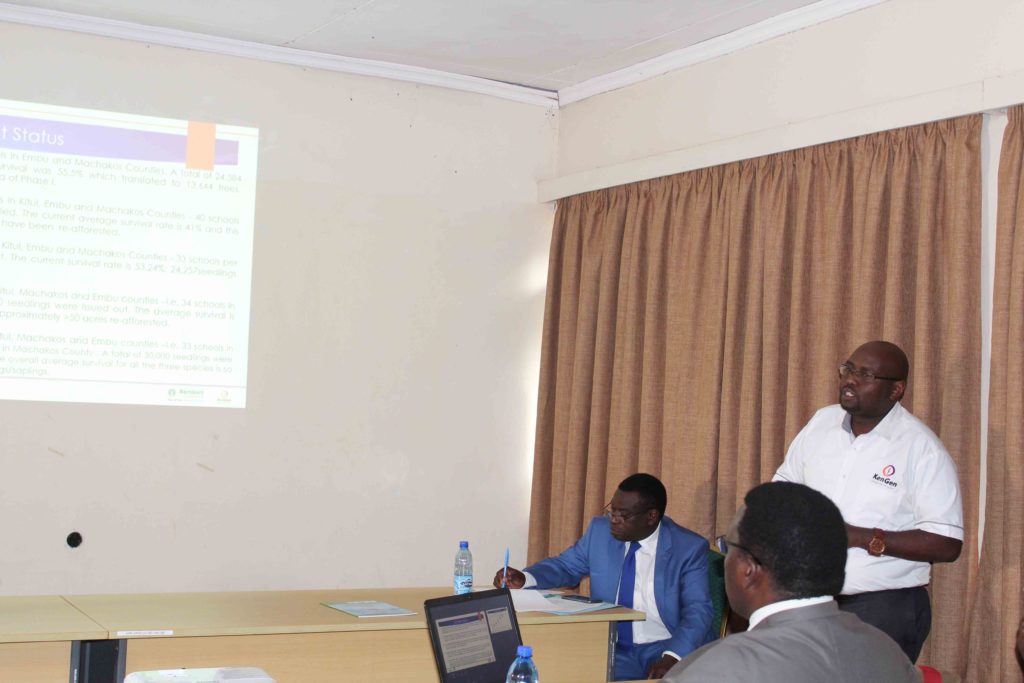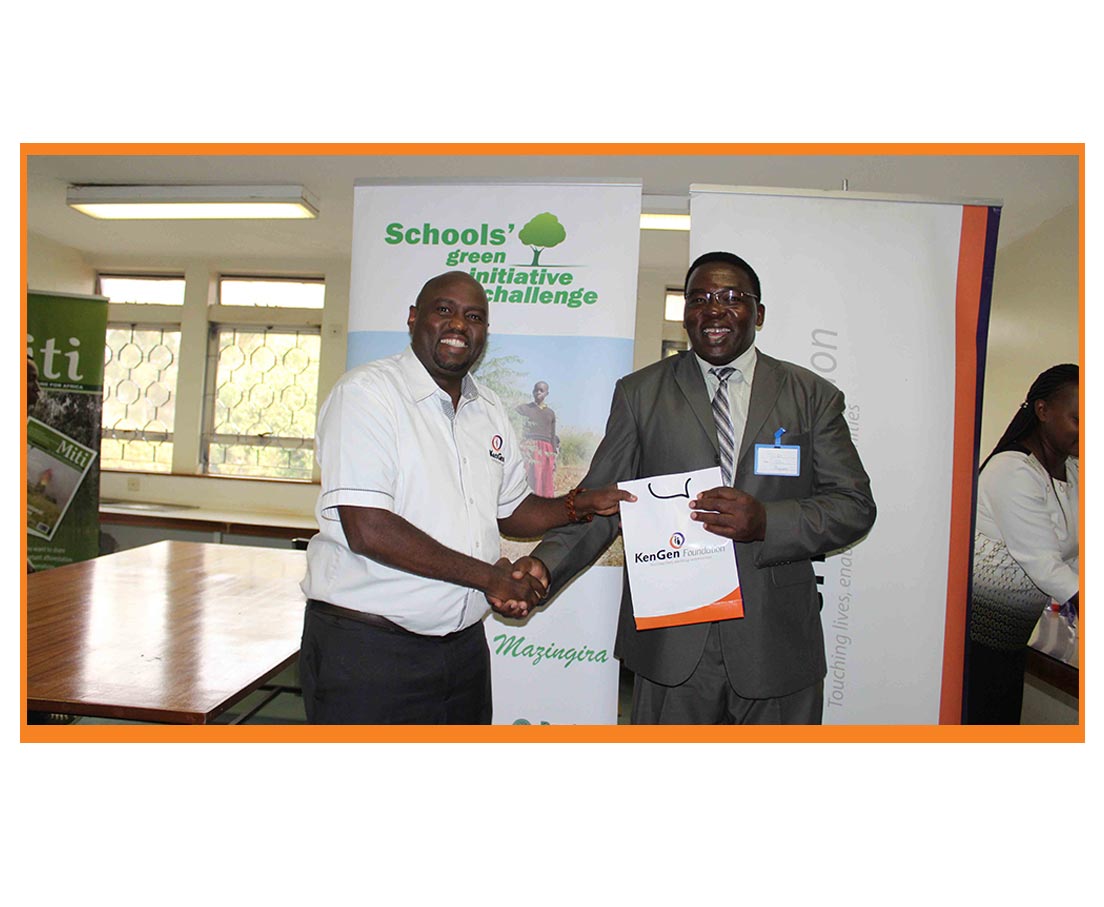Scholars Impressed by School Based Tree Planting Competition
The Schools Green Initiative Challenge impressed participants attending a workshop on dry-land agroforestry organized by the Foundation’s project partner Better Globe Forestry at the University of Nairobi – Kabete campus on 16 August.
The event was graced by the Ambassador of Belgium to Kenya His Excellency Mr. Nicolas Nihon, the Managing Director of Better Globe Forestry Mr. Jean-Paul Deprins, the KenGen Foundation Manaaging Trustee Mr. Anthony Igecha and representatives from the University of Ghent (Belgium), University of Nairobi, Kenya Forestry Research Institute, International Center for Research in Agroforestry/ World Agroforestry Centre, and Kenya Forest Service among others.
READ MORE: Schools Tree Planting Awards Come of Age.

The workshop was convened to discuss the challenges, benefits and way forward of cultivating Melia volkensii, the tree species used in the Schools Green Initiative Challenge (GIC), for farmers living in semi-arid regions.
In his presentation, the Foundation’s Managing Trustee Officer Anthony Igecha exhibited the schools tree growing model of the GIC project, highlighting the project’s contribution to the reduction of greenhouse gases through carbon sequestration, the control soil erosion by increasing topsoil infiltration and reducing runoff, and ultimately grooming the next generation of environmental ambassadors.

“It was honor to get recognition from our efforts after starting the pilot project at the semi-arid counties of Embu and Machakos with 81 schools in 2013”, said Mr. Igecha. “Currently, we have 200 schools involved in phase IV and V of the afforestation competition. We will be adding 100 more in 2020 so as to be able to achieve our ultimate objective of greening more than 460 acres with Melia volkensii, locally known as Mukau, and other dry-land tree species at schools within the two counties, including Kitui”.

Mukau, including Muveshi (S. Siamea) and Terminalia brownie, are the choice trees for the Schools Green Initiative Challenge, a unique project implemented by KenGen Foundation in partnership with Better Globe Forestry and Bamburi Cement Ltd. The project’s main objective is the greening of over 460 acres in the semi-arid counties of Embu, Kitui and Machakos as a way of mitigating climate change and providing wood fuel and alternative income opportunities for the local communities.







Melia Volkensii (Mukau) is a tree species that is indigenous to East Africa. In Kenya, the species grows naturally in Mbeere, Tharaka, Kitui, Mutomo, Mwingi, Makueni and Taita Taveta counties. The tree can grow to heights of up to 15m high and a diameter of 50cm over a period of 20 years. Mukau is drought resistant and can grow with an annual average rainfall of 400-1000mm. As a hardwood, it produces good quality timber, which makes it quite marketable and is also useful as fodder, bee keeping, and bio-pesticide manufacturing.
So far over 150,000 tree seedlings have been planted through the GIC, with 40,000 more to be distributed to the new schools next year.
If you enjoyed this blog post, share it with a friend!
Follow us on Twitter through @KenGen_Foundatn and like our Facebook page for more updates.
–Ernest Nyamasyo, Communication Officer

